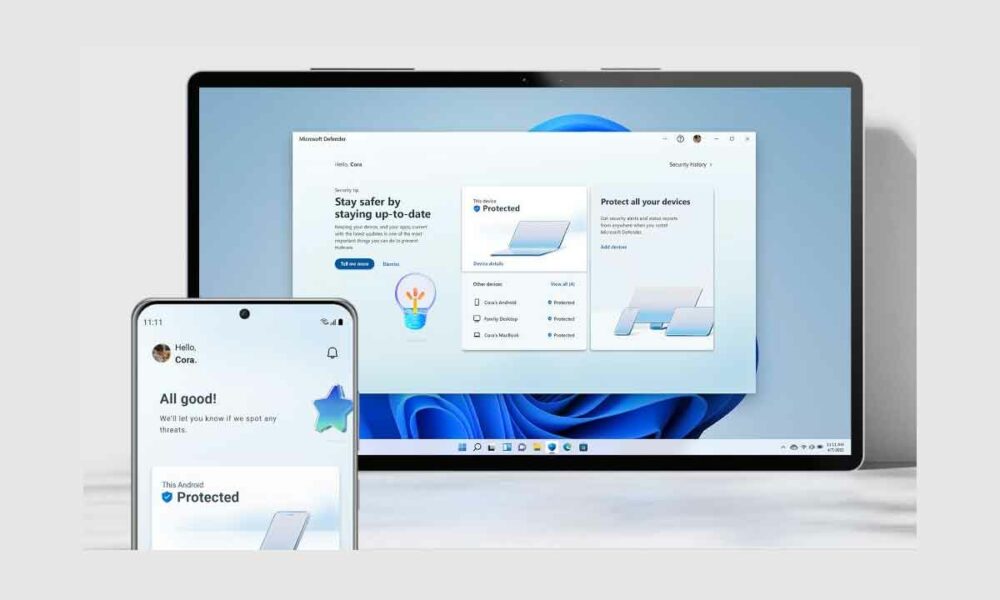Microsoft Defender has been part of the network for some time.at Microsoft’s suggestion to protect the security of its users…well, more precisely the kind that goes through the cash register. Recall that initially this security solution was only available for corporate levels of Microsoft 365 subscriptions, but from mid-2022 Redmond decided to also include it in the Microsoft 365 Personal and Microsoft 365 Family plans, and therefore launched it on the market. reach of individual users.
Months after that move, early last year, they took a rather significant step when they started automatically installing Microsoft Defender on all computers that had any of Microsoft’s apps installed. Microsoft Office Microsoft 365, a movement that probably responded to low level of Defender deployment among subscribers, who in many cases did not know they had access to this tool. There is no specific data on this, but one can imagine that its use has grown exponentially as a result of this movement.
Furthermore, this growth is not limited to the PC ecosystem because Microsoft Defender also has versions for Android and iOS, which in some cases receive functions before the PC version and allow installation on a total of five devices per user account. In my case, and because of the good reviews it usually gets, I use it on a computer and two smartphones, in addition to installing it on devices that pass through my hands for testing.

At the end of 2023, Windows Defender started offering a VPN service to its subscribers in the United States in its Android version (this is what I meant earlier when I mentioned the priority of mobile platforms). Well, according to Microsoft today The VPN service included in Windows Defender is making the jump from the US to the UK, as well as from Android to iOSwith it plans to reach more territories soon, as well as Windows and macOS.
Windows Defender VPN offers what we expect from a service of this type, but, as you will be familiar with, it does not allow us to choose the “outgoing” location of our Internet connection. Which of course brings me on understand this move by Microsoft as a response to the one recently made by Googlewith the exclusion of its VPN service from the benefits of Google One And yes, indeed, the inability to choose the country of departure was also a characteristic feature of Google.
This of course raises a big question for me. It’s clear that the extension within Windows Defender VPN is an attempt to capture Google One subscribers unhappy with the measure taken by Google. However, the search engine technology company said the reason it is removing the service is, in short, because practically nobody used it. So, if this is true, will Microsoft be able to find gold where Google can’t? I’ll admit I’d be surprised, though it’ll be worth staying tuned to see what happens.










![NASA shares all the flights made so far by the no longer usable Mars helicopter discovery [Video] NASA shares all the flights made so far by the no longer usable Mars helicopter discovery [Video]](https://cdn.webtekno.com/media/cache/content_detail_v2/article/143079/nasa-mars-helikopteri-ingenuity-ucuslari-paylasti-1713771652.jpg)



